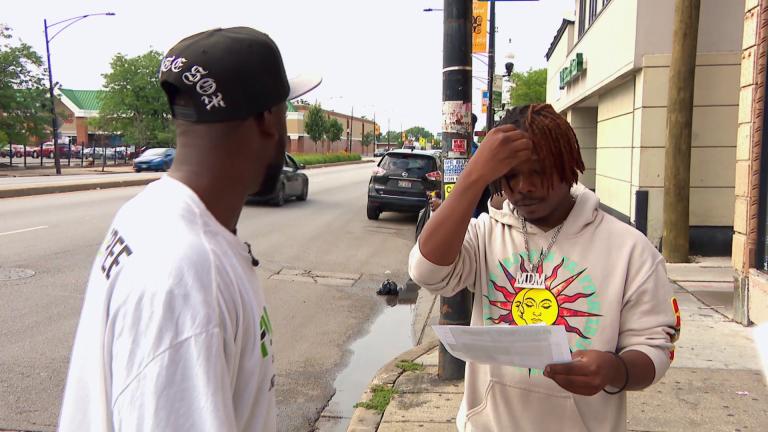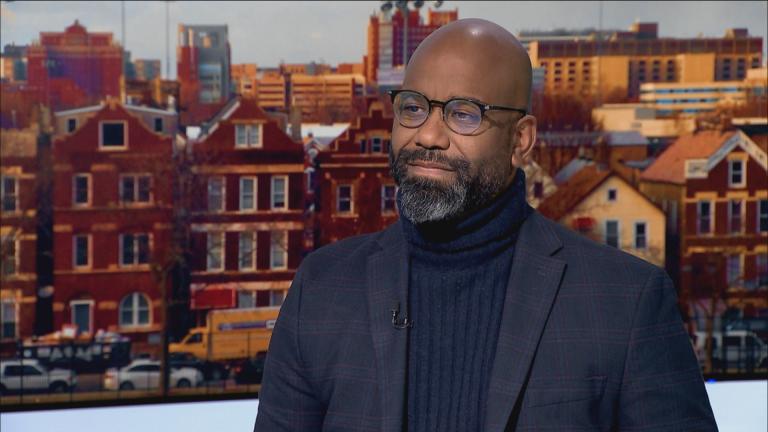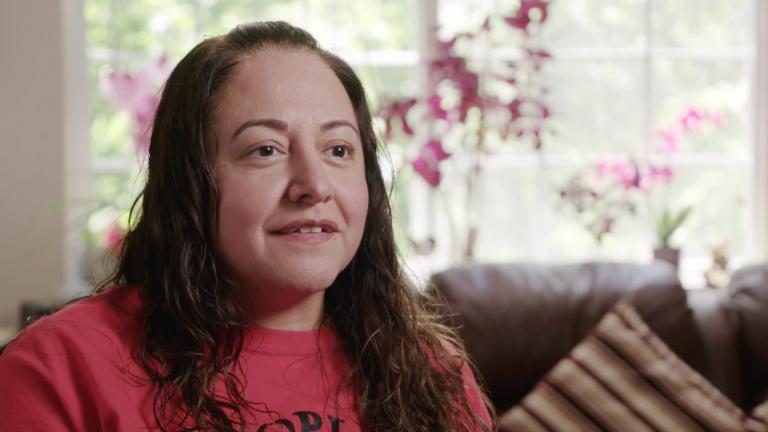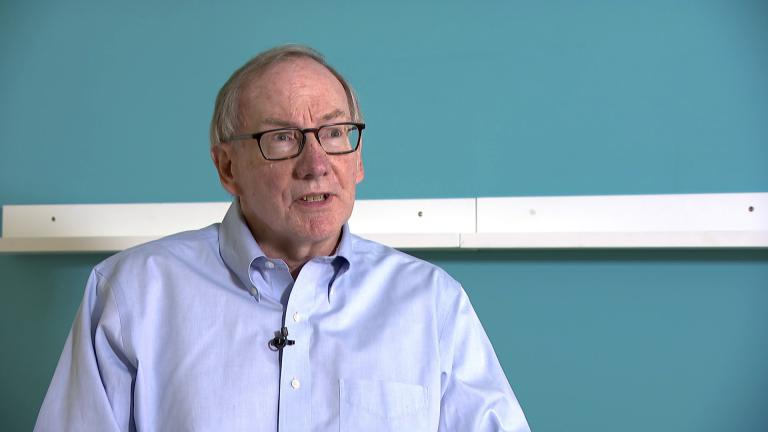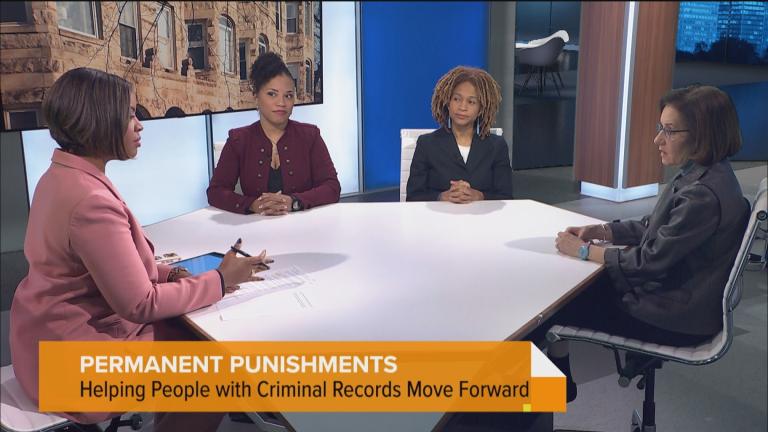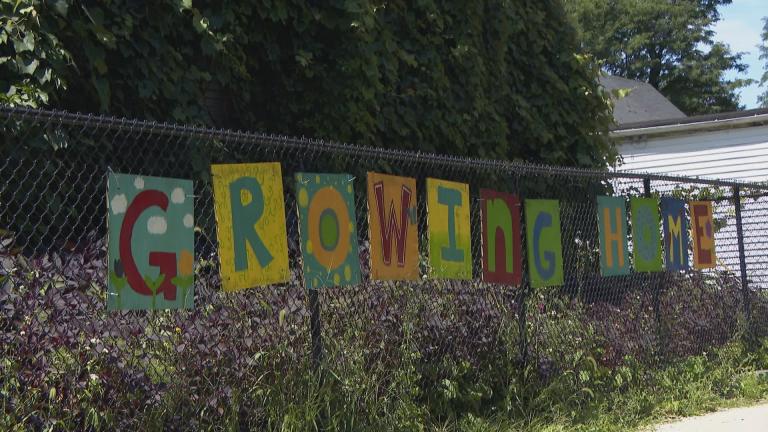The men incarcerated in Stateville Correctional Center have been called many names.
Mostly inmate.
But they’ve also been called: Student. Scholar. Author. And now, college graduate. History-maker.
Last week, the Northwestern Prison Education Program graduated its first cohort of students. The graduates are the first in the country to earn bachelor’s degrees from a top 10 university while incarcerated.
One of them is Benard McKinley.
“Five years ago, this moment right here, I definitely wouldn’ta foreseen it,” McKinley, 38, reflected after the graduation ceremony.
WTTW News first met McKinley and his 15 classmates a year ago, midway through their last year as Northwestern undergraduate students.
Professors and teaching assistants make regular trips to Stateville near Joliet for classes. In between classes, students complete assignments and write papers without the benefit of technology behind prison walls.
“This cohort survived the pandemic. They did physics by correspondence, we had staff driving boxes to and from,” explained Jennifer Lackey, Northwestern Prison Education Program’s director and professor.
With frequent applause, cheers and some tears, their graduation ceremony was a clear celebration in a place where there is often little to celebrate.
Each graduate gave a two-minute speech, demonstrating what they’ve learned and how they intend to use it.
“This moment is a culmination of literally 30 years of people pouring into me,” William Peeples told the audience of family members, professors and current students.
Anthony Ehlers advocated for more education programs like this one in prisons. “When you come to prison you’re going to get an education no matter what, I guarantee it,” he said. “But it’s up to lawmakers which education you get.”
Andre Patterson, 44, used his lessons in performance to make his point, depicting himself climbing and struggling to make it across the stage to the podium.
“I really wanted to convey the challenge, the challenges that I had to personally overcome,” Patterson said. “Along the way, while I was facing those personal challenges, I kind of had a realization that I wasn’t going through this just for me, I’m going through this for all of us, my community here, but also the community on the outside.”
He grew up in Evanston, in the shadow of Northwestern University, never thinking he would some day hold a degree from the elite institution.
Though he does today, it’s not the diploma he’s most proud of.
“This achievement, it’s a significant achievement, but it’s the journey to get here and it’s the potential possibility of what I can contribute,” Patterson said.
Another show of how exceptional scenes like this are: renowned author and journalist Ta-Nehisi Coates served as commencement speaker.
“I read someone here was coping with stage 4 prostate cancer as they went through the program. And brother, this is your book too, right?” he grinned while holding up a copy of Michael Broadway’s book, “One Foot In,” to laughter and applause from the audience.
In his speech, Coates detailed why he can relate to where they come from.
“I knew I had to come because I don’t know you. But I know you. I don’t know you. But I love you,” Coates told them.
Throughout the ceremony, there were multiple cheers for one person in particular: the cohort’s matriarch, Jennifer Lackey, who says she does this work, in part, to make an example.
“Places like Northwestern with immense resources and excellence really should be the ones that step up and do this work,” she said. “I think that what we want to do is set a model for what prison education would look like. We want to show what’s possible, and that you can truly offer the same quality of education that you provide on your campuses, and even in a facility that has maximum security students in it.”
But she also does this work, she says, to inspire hope.
“This is a community, too. I think a lot of people are very directed at like, ‘what do you do with this [degree] on the outside?’ This is a space too where there are lives being lived,” she said. “And being able to bring mentors and tutors to this space is life changing for many of the men here in this community, and for their children and mothers and loved ones back home.”
NU currently has approximately 100 students enrolled at both Stateville and Logan Correctional Center for women in Lincoln, Illinois. The three other cohorts of current students at Stateville also attended the ceremony. The first cohort of women at Logan are expected to graduate in the next two years.
While some of these men may only apply their degrees from inside prison, others will return to their communities.
McKinley is one of them. He’s set to go home in March after 19 years in prison.
“This is what equal opportunity looks like when there’s not the roadblocks that’s keeping us from being able to compete with the other social dynamics that are put in place to hinder us,” said McKinley. “And if you give us that chance to succeed, like I said, the cream is gonna rise to the top.”
McKinley made history earlier this year as the first incarcerated person in Illinois to take the LSAT. He’s planning to apply to Northwestern Law School and eventually work as a civil rights attorney.
“I feel that given the mishaps and the poor decisions I made as a child, of taking from my community, this is one way to be a public servant to help my community,” he said.

